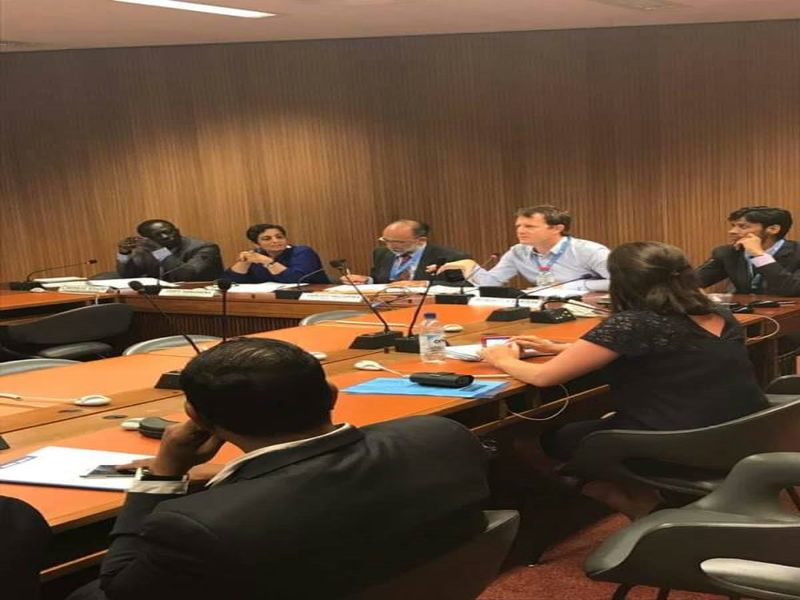Experts call on Commonwealth to build Human Rights capacity of members
CHRI’s HRC side event – Report Release of ‘Missed Opportunities: The Commonwealth at the Human Rights Council: A Decade of Voting (2006-2016)’
20th June 2017
Geneva
Senior international human rights experts have urged the Commonwealth to develop capacity and training for smaller nations in critical issues relating to basic rights saying that this would enable both governments and civil society groups to engage effectively with international human rights bodies.
The panel discussion “Missed Opportunities”, on Monday, 19th June, marked the release of the Commonwealth Human Rights Initiative`s (CHRI) report surveying Commonwealth members’ voting patterns at the HRC. The report was produced to highlight opportunities for the Commonwealth to reflect on and improve its record at the UN Human Rights Council (HRC).
The panel was chaired by Sanjoy Hazarika, Director, CHRI, who spoke of “shrinking civil society spaces and the cold winds of intimidation” across the world, by governments and non-State groups, especially on issues of freedom of expression and assembly and the need for individuals to have the liberty to adopt social and cultural lifestyles peacefully.
There is potential for the Commonwealth to form an influential bloc in Geneva. During the first decade of the HRC, 19 Commonwealth members served on the HRC, on average comprising 23% of the Council’s members in each session. The report though demonstrates that so far, collective Commonwealth action has been disappointingly absent.
Jyoti Sanghera, chief of the Asia and Pacific Division at the Office of the United Nations High Commissioner for Human Rights (OHCHR), underlined that though countries like India, Pakistan, Bangladesh, Sri Lanka, Maldives and Malaysia consistently voted in favour of resolutions on economic social and cultural rights, they faced challenges to implement human rights obligation at domestic levels.
Further, she said, these countries have obligation to work for the progressive realization of economic, social and cultural rights with maximum resources. She underlined that since Commonwealth countries did not vote as a bloc, their significant presence at the HRC did not influence its work.
The report breaks new ground in analysing voting patterns. Panellist Marc Limon, Executive Director, Universal Rights Group commended the report, commenting “despite the HRC now being ten years old, and despite the fact voting is key to country’s performance, there has been very little research done on voting’. He described the event as unique and “the first such event I have attended in my eleven years in Geneva.”
Yashasvi Nain, the report’s author, said Commonwealth members needed to be held to the rights values agreed to in the organization’s Charter and provide leadership on specific issues such as freedom of religion, sexual orientation and gender identity, reprisals against human right defenders. They needed to campaign against torture and vote as a block on these issues of international concern.
Diplomats from Canada, Fiji, Ireland, Israel, Malawi, New Zealand, Solomon Islands, United Kingdom, and Uganda, joined a range of civil society leaders at the event. There appeared to be general agreement that the Commonwealth Secretariat must do more to support Commonwealth small states in Geneva.
Mark Matthews, the UK’s Deputy Permanent Representative praised the report, saying that the Commonwealth should be much more deeply involved in training and capacity building as part of its technical assistance mandate.
Diplomats from other Commonwealth countries emphasized the need for full time secretariat support in Geneva which could support small states with limited capacity and also to keep member states briefed on Council business.
To access the full report, Click here
For PDF download file, Click here
For more information, please contact:
Yashasvi Nain
Programme Officer, Strategic Initiatives Program
Email: yashasvi@humanrightsinitiative.org
